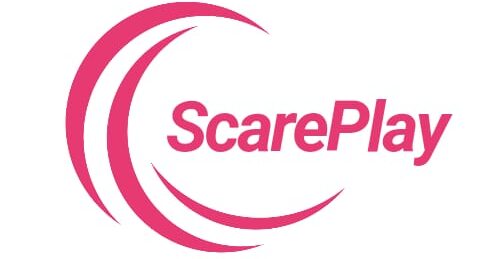Beautiful landscapes and a diverse population make Cape Town famous all over the world, but today it has become not only a place for sightseeing but also a necessary place for obtaining treatment for addiction. And as substance abuse continues to grow in South Africa, it becomes important to have high-end rehabilitation centers in Cape Town than ever before. These Verslavingskliniek Zuid Afrika (addiction clinics in South Africa) offer such importance and complete treatment services related to patients who have the desire to abstain from substances.
The aim of this article is to inform the readers on the various rehab centres in Cape Town, and the kind of treatment they offer, the holistic structure that they have put in place to ensure that these patients get the best care and support they need to recover in this lively city. Although focusing on such centers, we will try to raise awareness of when and where to get help, and the services that accompany those who are already in the process of becoming sober..
Conceptualising Addiction in South Africa
Alcoholism is a complex combined problem within persons, households, and societies across South Africa. Drugs can be classified into legal and or illegal, and or legal but when used in excess are prohibited, and they include; alcohol, illicit drugs and prescription drugs. The South African Community Epidemiology Network on Drug Use reports that alcohol continues to be one of the most widely used substances in South Africa and that drug use, especially among the youth population, is increasing. The consequences of substance dependency / addictions are numerous and its effects are social, economical and health wise affecting the people involved and the society.
The Need For Rehabilitation Services
For this reason the problem with addiction is becoming more frequent and thus there needs to be good rehabilitation services. Chemical dependency treatment facilities in Cape Town are sanctuaries within which patients may confront the disease as a viable concept. They offer packages that include treatment that is thought to take lasting solutions to the problem and help those affected to be able to avoid future problems.
My Submission: Rehabilitation
Recovery is not just about quitting substance use either; it is about creating a new and healthy change process that will sustainably help in the recovery process. Virtually all aspects of rehabilitation involve the assessment of or treatment for emotionality, psychologic, or social concerns. This depends on the kind of rehab that ranges from psychological, medical, social and spiritual with the ultimate goal of achieving a long healthy life after treatment.
Rehabilitation: The Components & Theoretical Framework
Effective rehabilitation typically includes several key components:
- Assessment and Diagnosis: Evaluation studies make it easy for the professionals to gain an insight into the problems facing the client and come up with appropriate interventions measures.
- Detoxification: For hard core addicts, detoxification is usually the initial process, where the body is cleaned of toxins within a controlled environment.
- Therapeutic Interventions: Both the individual as well as group and family therapies are the techniques applied to ensure that the patients get the needed therapy.
- Aftercare Support: Continued care following a program is necessary to share improved, good behaviors and avoid returning to old habits.
Types of Rehabilitation Programs
Rehabilitation programs are generally of two forms; Vocational rehabilitation programs and Supported education programs.
Incarcerated individuals have similar characterization in regard to participation in rehabilitation that is as follows: Rehabilitation programs can be qualitatively and quantitatively different from one another. From this paper, people shall be in a position to understand various types of recovery processes available hence enable them to make the right choices for their recovery process.
1. Inpatient Rehabilitation
A feature of inpatient rehabilitation programs is the necessity of the patients to live at the center where they receive the treatment. Such a program is quite intense because clients are under the medical care of the staff and other individuals performing the program simultaneously. Inpatient rehabilitation makes a lot of sense for people with severe alcohol dependence or other comorbid psychiatric disorders for several reasons as it offers a protective environment for clients.
2. Outpatient Rehabilitation
Partial hospitalization services for instance enable clients to travel to the center for appointed therapy sessions and then return home. This type of treatment is designed for individuals who have relatively mild addiction problems or is a good program for those who have been in an inpatient program. Clinically, outpatient programs allow individuals to use coping skills learned in real-life while receiving therapy.
3. Detoxification Programs
It is also known that the first stage of recovery is most commonly detoxification. Inpatient medical detox helps give patients a secure place for them to experience withdrawal with the support and supervision of a medical staff. This is especially so where the substance in question has withdrawal signs that are complicated and dangerous.
4. Aftercare Services
Outpatient services are a necessity to increase the likelihood of complete and lasting abstinence. Rehab centres in Cape Town provide aftercare through individual and group counseling, twelve-step groups and community services. An aftercare service makes it easier for people to overcome complications arising after rehabilitation and confirms their intention of turning over a new leaf.
Approaches to Treatment
There are many therapies that are used by different rehab centers in the treatment of addiction – many of them use these approaches and combine them to provide the patient with an individual treatment plan. Here are some common therapeutic modalities:
1. Cognitive-Therapy of Behavior (CBT)
CBT is an accredited treatment modality that focuses on helping patients modify unhealthy cognitive processes and behaviors. By learning the connection between thoughts, feelings and behaviors, clients are able to modify how they respond to high risk situations and avoid relapse.
2. Dietary Motivational Interviewing (DMI)
MI is a client-focused counseling approach developed for the purpose of increasing clients’ change process motivation. During discussion, the professional assists a client in discussing his or her uncertainty about receiving treatment and in finding the motivation to change. It helps the patient to feel a responsibility and duty to get well and regain his or her mobility.
3. Holistic Therapies
It is common to find that many rehab centers offer other nontraditional methods of treatment like doing yoga, meditating and using art for therapy. Both are believed to heal the body as well as the mind and spirit to make people have complete well being other than through counseling.
4. Family Therapy
Substance abuse is not only a personal problem but has a close one implication too. In the context of treatment family work includes the family in the rehabilitation process in order to restore relationships as well as facilitate the effective recovery of the patient. This type of approach takes into consideration the need for family support in the ability of the patient to sustain the goals of recovery for the long-term.
Deciding on the Reconditioning Center
Selecting a particular rehabilitation center is among the most important decisions that a patient makes. Here are several key factors to consider when selecting a facility in Cape Town:
1. Accreditation and Licensing
Make sure that the rehab center is accredited and licensed by the right health bodies. The clients that come to the facilities also get to understand and appreciate that accreditation means that the facility offers the best care and practices good ethical standards.
2. Treatment Approaches
Find out more about the therapeutic models in the facility. Existing research should be sought when identifying programs that respond to the specific needs and preferences of the individual as well as any concurrent mental illness.
3. Staff Qualifications
You should get to know about the staff’s medical qualifications and experience in the facility. The patient should potentially be treated by a number of trained and professional staff during the entire course of the recovery period.
4. Location and Environment
look at the location of the rehab center. Psychologically, creating a serene atmosphere may be useful in helping a patient have a positive perception of the [recovery] process; reporting close relationships with an individual’s family members may also be helpful in terms of follow up care.
5. Aftercare Programs
Gather information concerning the processes you will facilitate to make sure that clients can continue receiving help after the program. It is important for an individual to fashion out a good aftercare plan since relapse is a common factor among individuals who have been treated for alcoholism.
Community as a Factor in Recovery
Anthology also synthesizes structures that address the need of an individual within the community during recovery. Cape Town also has AA and NA that are support structures where people who are suffering from substance use disorders meet other such persons to encourage one another. These groups encourage the members to support each other, be responsible for each other and even share their experience in the recovery process.
Building a Support Network
Positive results can be achieved if family and friends can be encouraged to come on board and support the journey to recovery. Family engagement might assist in the process of reconciliation, and offer sound support, which is especially crucial at stages when the patient seems to be the most fragile.
The Journey of Recovery: Personal Stories
It is sad but many have lost their way and had to rethink their decision in life and opt for rehab in Cape Town. These are the stories of hope – of change that is possible in this world. These stories make people feel that they belong somewhere and encourage people to come forward for help.
Overcoming Adversity: A Personal Journey
Imagine the story of a person who developed a substance use disorder after departing through some life calamity. In the beginning, substance use was an attempt at avoiding any type of discomfort or pain one might experience, which rapidly led to substance abuse addiction. When you could not take it anymore, you went to this rehab center in Cape Town., But during the time of therapy, detoxification and involving family members in their sessions, they started recovering.
There were some hitches along the recovery process and there was a time the founders almost gave up. Alas they build up necessary skills with help of therapists, peers and families to become able to manage triggers and stressful events. Today, people tell their stories to others, how receiving the appropriate help changed their lives and how people matter in the process.
Conclusion: Embracing a New Beginning
Services provided in rehabilitation center in Cape Town are not only treatment of substance use disorders, but a chance for a new life. Emphasizing the spiritual mental and social aspects, people are able to recover from substance use disorders. The road to healing can be a rough one, However, donors and self- effort will be enough to ensure that there is a better tomorrow.
The movement of starting over and the hope of healing is at the core of Cape Town where mountains rise to the sea. If you or your loved one is in need of help, don’t despair, you are not alone – there is help available to you and the journey ahead will be a wonderful and fulfilling process. Future is uncertain, so let’s accept the change and take the first step to recovery right now. Much about the city remains natural and culturally vibrant and the process of getting sober is as much about conserving a life as it is about altering one.


